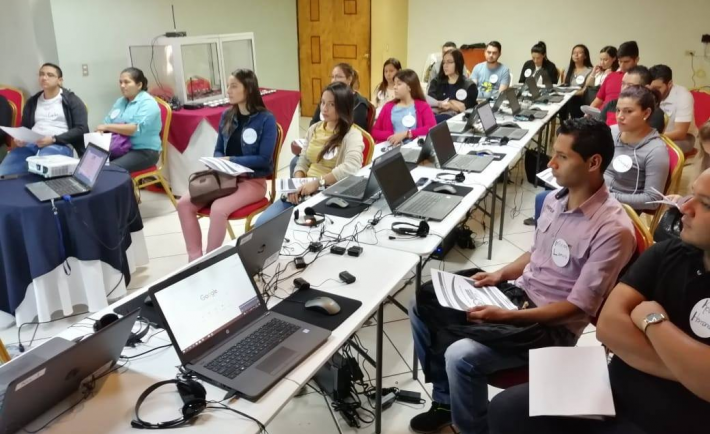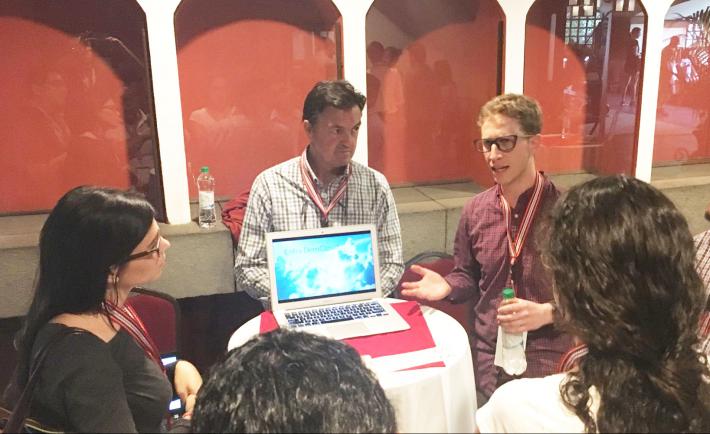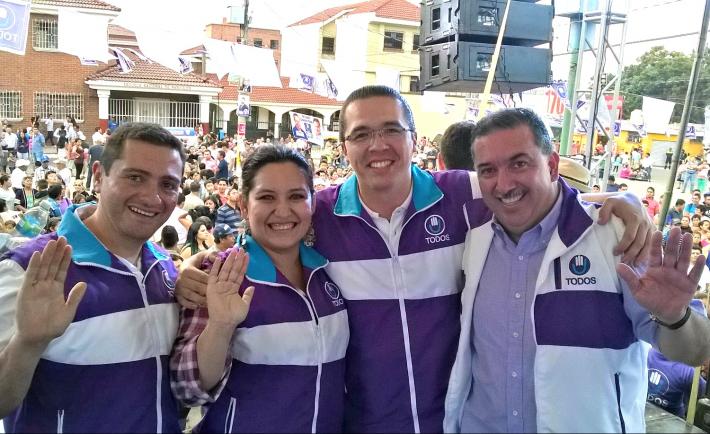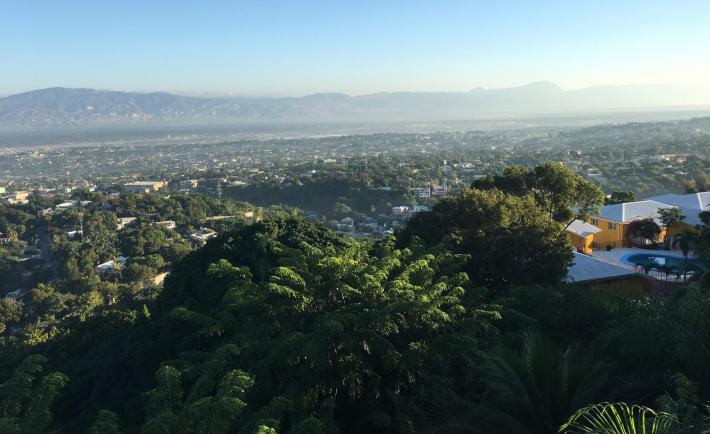My seatmate pulled out her phone the moment our packed plane touched down in El Salvador three days before the country’s February 3 presidential elections. She began furiously scrolling through her Facebook feed, her face lit up with campaign slogans, articles and the smiling faces of candidates Nayib Bukele, Carlos Calleja and Hugo Martinez. Peering over her shoulder, I watched as she punched out a comment lambasting corrupt status-quo politicians. “El Salvador doesn’t need another leader who steals from us,” she typed. “Bukele deserves a chance.” The goal of my trip to El Salvador was to assist our local partners with a USAID-funded election-day observation. NDI supported a consortium of Salvadoran universities and a civil society organization, together called Observador Electoral 2019, to recruit, train and deploy 850 Salvadoran election observers to monitor a statistically representative sample of 700 polling stations nationwide.
Inside the Cueva: My Experience Observing El Salvador’s 2019 Presidential Election
Latin America Fights to Eradicate Violence Against Women in Politics
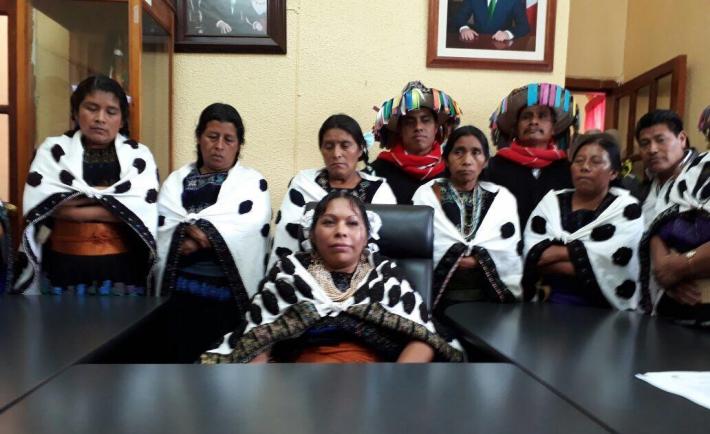
Picture tweeted by Rosa Pérez when she returned to her Municipality Office after the Federal Electoral Court ruled in her favor.
Latin America is the leading region in the world addressing violence against women in politics (VAWP). As a former justice of the Federal Electoral Court in Mexico and as the first woman to be president of that Court, I wish to share my thoughts on the current legal status of the issues in Latin America. I will also provide recommendations on how the campaign can stop this type of violence.
Making Democracy Popular: Corruption, Populism & Brazil

Brazilians take to the streets to protest rampant government corruption on March 13, 2016. Photo by Agencia Brazil (CC BY 3.0 BR)
What do Mexico’s Andrés Manuel López Obrador, Hungary’s Viktor Orbán, the Philippines’ Rodrigo Duterte and Venezuela’s Hugo Chávez have in common? They’ve all been branded as populists, both celebratorily and scathingly. As Brazil heads to elections on October 7, all eyes are on ultra-conservative candidate Jair Bolsonaro – who brazenly rejects political correctness, defends Brazil’s authoritarian past and promises to upend the establishment – as the latest in a line of political strongmen turning citizen malaise into electoral success. Charismatic populist leaders present society as divided into two separate and homogeneous entities: the corrupt elite, and the pure people who the corrupt have oppressed. Proclaiming their direct link to the people (often enabled by social networks), they tend to eschew representative institutions and checks and balances. While left-wing populists take a class-based approach pitting working and middle-class people against a greedy economic elite, right-wing populists typically define the people as an exclusive group along ethnic, racial or national lines.
NDItech Goes to (Tech) Camp
The last few months, we here at NDItech – NDI's technology for democracy team – have had the great opportunity to talk civic innovation, transparency and accountability with dozens of civic groups, journalists and government officials through a set of TechCamps and PeaceTech Exchanges. These programs, put on by the State Department and PeaceTech Lab respectively, link technical experts with innovators across the globe to brainstorm, “pitch” and ultimately bring to life smart, contextualized tech solutions to pressing community problems. It’s been a pleasure for us (your bloggers) to be a part of these sessions, which we wanted to share a bit about with you all (our loyal readers).
Name It, Talk About It: Putting an end to violence against women in politics in Honduras
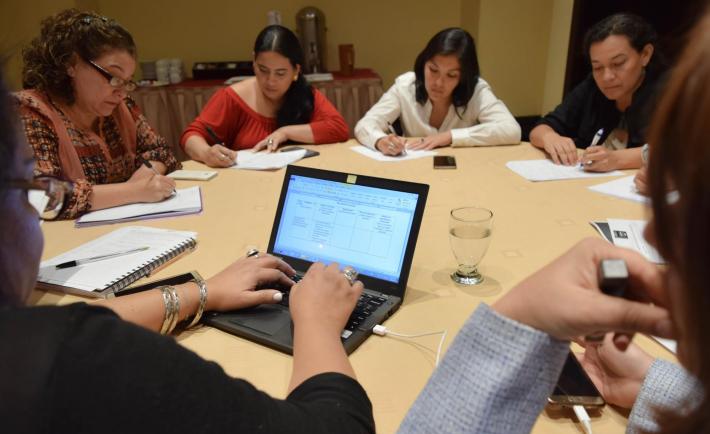
Political party members participate in a focus group to inform the assessment on violence against women in political parties in Honduras.
For NDI and its Honduran local partners, addressing violence against women in politics is critical to promoting strong and inclusive democratic societies. Violence against women in politics is a barrier to their active participation in democratic spaces and limits their ability to lead and be heard by their communities. It is important to place this issue on the political agenda and advocate for legislation to prevent, respond to, sanction and eradicate all forms of violence against women. In an effort to document violence against politically-active women in Honduras, NDI supported the creation of the Women’s Political Violence Observatory during the 2017 electoral process. The Observatory documented and followed 14 cases of violence against female candidates in San Pedro Sula, including Councillor Fátima Mena Baide, throughout the pre-electoral period.
My Rights are Your Rights: How one transgender woman in Guatemala is making change
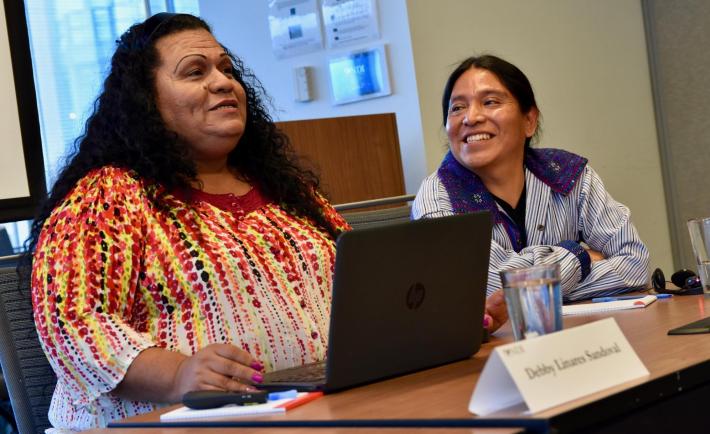
Debby Linares, during her presentation at NDI, with fellow human rights activist, Fernando Us Alvarez.
In the first week of December 2017, I had the chance to meet Debby Linares, a transgender woman and human rights activist from Guatemala, who soon became an inspiration to me on a personal level. Debby, who has been a human rights activist for the past 16 years, advocates for Lesbian, Gay, Bisexual, Transgender and Intersex (LGBTI) rights at the municipal and state level in Guatemala.
New Challenges and Opportunities for Democracy in the Western Hemisphere
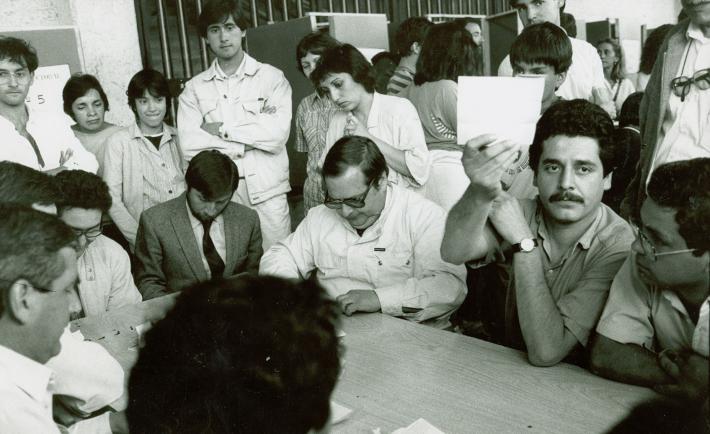
Election workers count votes during Chile’s 1988 plebiscite, which ended Pinochet’s dictatorship. Source: Flickr
When I started out as a junior State Department diplomat at the close of the Carter Administration in the dark days of the Cold War, the state of democracy in Latin America was abysmal. Military dictatorship was the norm throughout the region. During my early State Department years I worked to support, sustain, and contribute to the so-called third wave of democracy in the Americas that helped make the Latin America region, as the Economist recently said, “the most democratic region of the developing world,” behind only North America and Western Europe.
Being Bold for Change in Guatemala
In 2013, while I was working in partnership with NDI Guatemala, I became interested in encouraging more women to get involved in politics, so I applied for the Andi Parhamovich Fellowship. I proposed a project focused on increasing women's participation as decision-makers in Guatemala - a huge challenge for me considering my background was in the sciences and I was new to politics.
Through my APF project I worked on a training program to prepare female candidates, who defied gender stereotypes, for the legislative elections in 2015, but we never expected a year like that.
First Action Plan for a Transparent Congress in Colombia
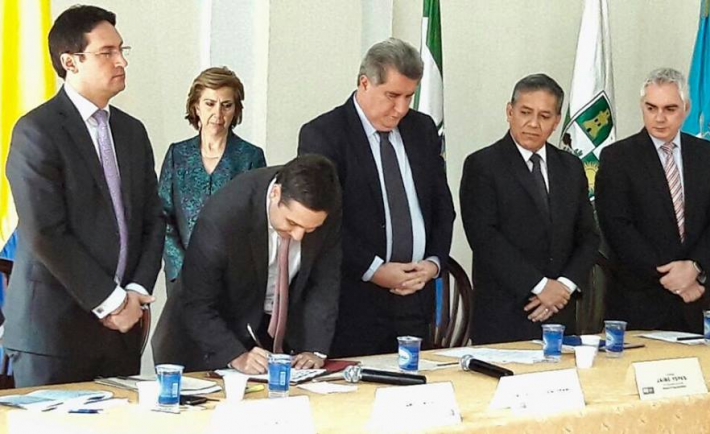
The president of the senate signs the first action plan for a transparent congress Credit: Press Office of the Honorable Senate of the Republic of Colombia, Bogotá, Colombia. November 2016.
On November 30 in Constitution Hall of the Honorable Congress of the Republic of Colombia, an important event took place for the country’s democracy, particularly its legislative institutions. Leaders from the Senate and Chamber of Representatives came together to publicly present the first Open Parliament Action Plan of the Colombian Congress, which lays a series of benchmarks toward making the congress more visible and accessible to citizens. Colombia’s Open Parliament Action Plan is notable regionally and internationally – it is the third such plan developed in Latin America and the sixth in the world.
One Step at a Time in Haiti
Haiti is a country of natural beauty and vast potential, but something is always getting in the way of its progress. As the first independent nation in Latin America, and one of the oldest democracies, Haiti has a proud tradition on which to build. However, in the wake of the world’s only successful slave revolt and its declaration of independence in 1803, nations refused to recognize Haiti’s independence for decades, fearful of encouraging revolt among their own slave populations.

